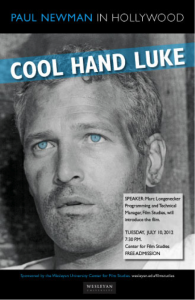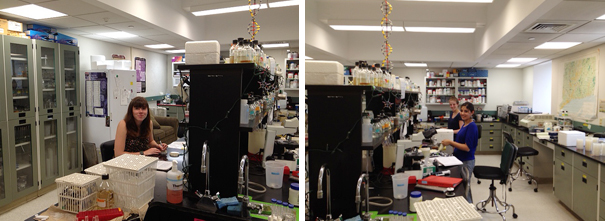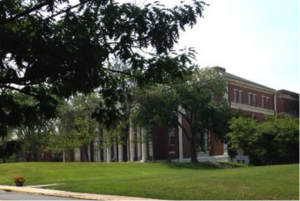Recently I’ve been reading early 20th century essays by Jane Addams, the dynamic activist, social reformer and anti-war crusader. Addams is best known as one of the founders of Hull House, a vital educational community center for civic engagement and neighborhood improvement in Chicago. Addams‘ was a powerful force for democratic change in America, and she was also committed to the idea that education would serve democracy by allowing us to become more understanding of alternative points of view as we worked with one another.
One of the great experts on Jane Addams is Louise W. Knight ’72, whose two intellectual biographies I have found enormously helpful. Addams’ father rejected her wish to attend Smith College, where she had hoped to participate in the liberal arts education of her day. So, following intellectual success at seminary, she continued her education herself by studying some of the great works Western Culture has to offer. She also studied the industrial changes of her time, including the dramatic increases in extreme poverty and extreme wealth as the 19th century turned into the 20th (sound familiar?). But at some point she began to wonder if she was forever preparing herself for action instead of taking action. Had her education become a delaying tactic for dealing with the world?
She relates that, when confronted with the horror of poverty in East London, what came to her mind was De Quincey’s inability to issue a warning to a couple he saw in immediate danger until he recalled the exact words from the Iliad of a warning delivered by Achilles. Addams, instead of reacting to the grave situation before her eyes, found herself thinking of de Quincey’s inability to react to a situation before his eyes. Education – knowing the Iliad, knowing de Quincy – had become an impediment to action. Were we “lumbering our minds with literature” instead of reacting to the “vital situation spread before our eyes”? This is what Tolstoy had labeled the “snare of preparation.” Addams became convinced
[t]hat the contemporary education of young women had developed too exclusively the power of acquiring knowledge and of merely receiving impressions; that somewhere in the process of “being educated” they had lost that simple and almost automatic response to the human appeal, that old healthful reaction resulting in activity from the mere presence of suffering or of helplessness; that they are so sheltered and pampered they have no chance even to make “the great refusal.”
We often talk about Wesleyan as an “engaged university” and the importance of avoiding this “snare of preparation.” We don’t want only to “lumber our minds” with books and articles, wesbites and blogs. We want our education to prepare us for life – not to help us avoid living.
Liberal education today should prepare students for life, and Wesleyan has been increasingly focused on doing a better job of helping them transition from campus to life after graduation. Whether students do this through activism or internships, service learning or “intellectual cross-training,” they learn to make their education feed into what they will be doing in the world.
This is pragmatic liberal arts education. To talk of pragmatism doesn’t mean that we stop reading great books, absorbing powerful art, or learning languages. After all, what I’ve written here depends on reading Addams and knowing something about de Quincey, Homer, and others. We should feel no threat to our studies when asked what we shall do with what we study. There are so many possibilities! The sphere of possible action wasn’t limited to industrialism at the beginning of our century, and it sure isn’t limited to finance or digital media entrepreneurship today.
One of the founders of American pragmatism, C.S. Peirce, wrote that the whole function of thought is to produce habits of action. William James emphasized that we had to take action in the broadest sense, “every sort of fit reaction…brought by the vicissitudes of life.” With Jane Addams in mind, we might say that the whole function of education is to produce habits of action, fit reactions, that contribute to our individual and social good.
cross-posted with washingtonpost.com





